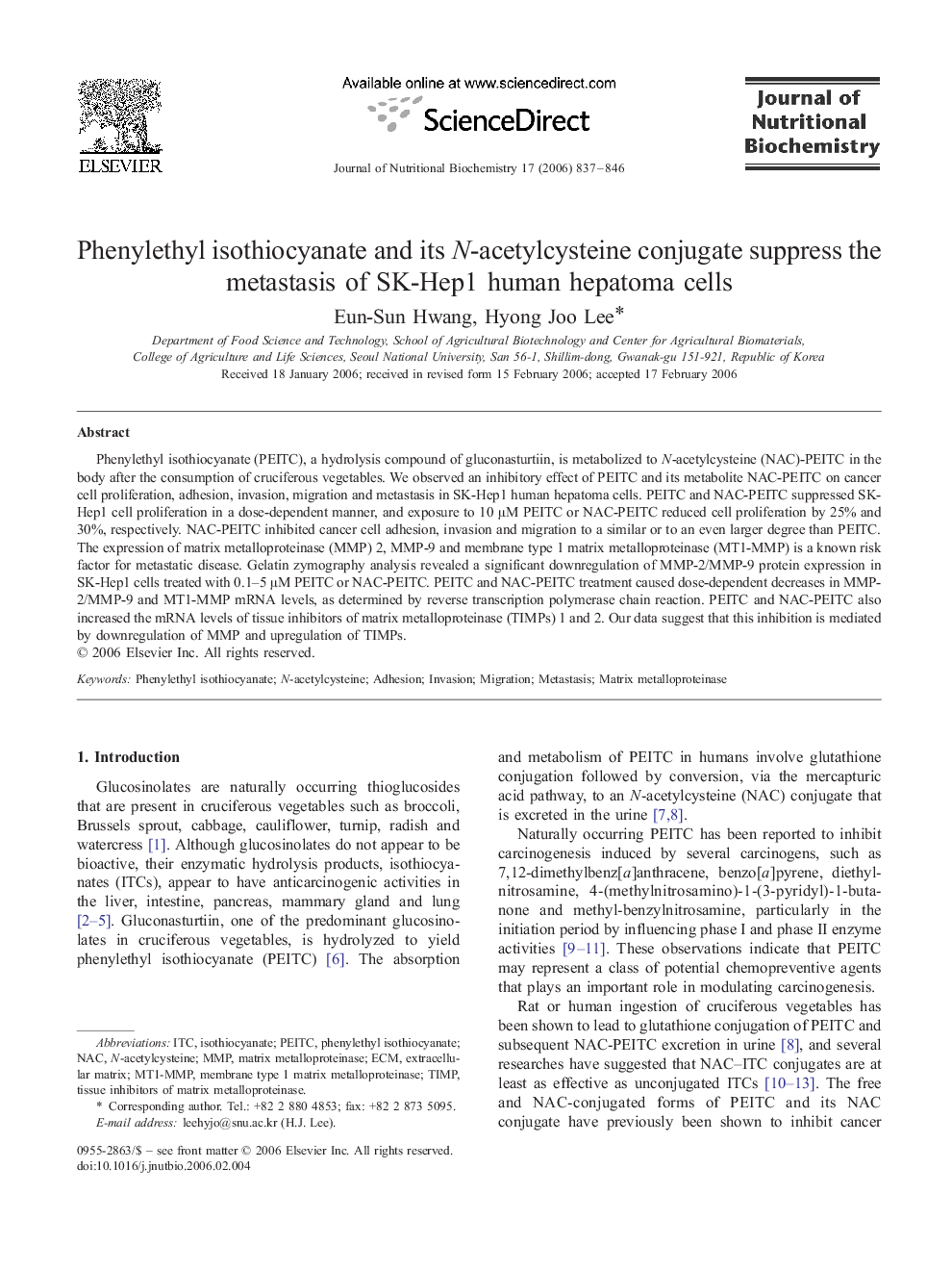| کد مقاله | کد نشریه | سال انتشار | مقاله انگلیسی | نسخه تمام متن |
|---|---|---|---|---|
| 1990536 | 1540750 | 2006 | 10 صفحه PDF | دانلود رایگان |

Phenylethyl isothiocyanate (PEITC), a hydrolysis compound of gluconasturtiin, is metabolized to N-acetylcysteine (NAC)-PEITC in the body after the consumption of cruciferous vegetables. We observed an inhibitory effect of PEITC and its metabolite NAC-PEITC on cancer cell proliferation, adhesion, invasion, migration and metastasis in SK-Hep1 human hepatoma cells. PEITC and NAC-PEITC suppressed SK-Hep1 cell proliferation in a dose-dependent manner, and exposure to 10 μM PEITC or NAC-PEITC reduced cell proliferation by 25% and 30%, respectively. NAC-PEITC inhibited cancer cell adhesion, invasion and migration to a similar or to an even larger degree than PEITC. The expression of matrix metalloproteinase (MMP) 2, MMP-9 and membrane type 1 matrix metalloproteinase (MT1-MMP) is a known risk factor for metastatic disease. Gelatin zymography analysis revealed a significant downregulation of MMP-2/MMP-9 protein expression in SK-Hep1 cells treated with 0.1–5 μM PEITC or NAC-PEITC. PEITC and NAC-PEITC treatment caused dose-dependent decreases in MMP-2/MMP-9 and MT1-MMP mRNA levels, as determined by reverse transcription polymerase chain reaction. PEITC and NAC-PEITC also increased the mRNA levels of tissue inhibitors of matrix metalloproteinase (TIMPs) 1 and 2. Our data suggest that this inhibition is mediated by downregulation of MMP and upregulation of TIMPs.
Journal: The Journal of Nutritional Biochemistry - Volume 17, Issue 12, December 2006, Pages 837–846